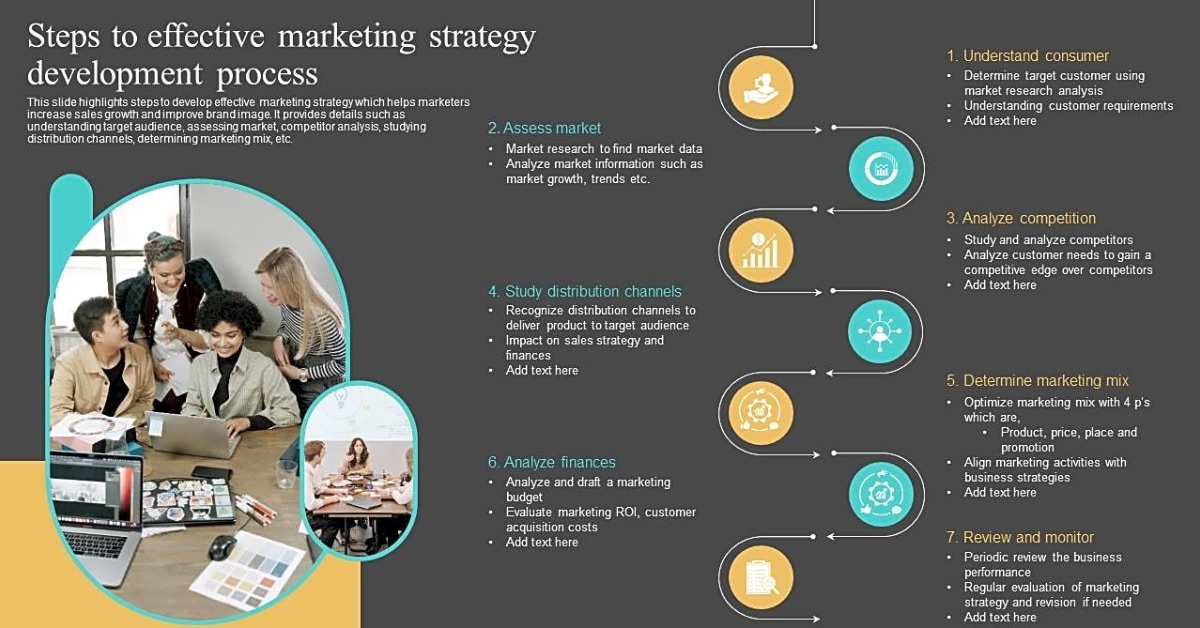Implementing marketing automation software and integrations can be a game-changing decision for any business looking to streamline their marketing efforts and improve overall efficiency. In today’s fast-paced digital landscape, marketing automation has become a necessary tool for businesses to stay competitive and reach their target audience effectively. Whether you are a small startup or a large enterprise, implementing the right marketing automation software and integrations can make a significant impact on your bottom line. In this comprehensive guide, we will delve into the world of marketing automation services and solutions, exploring how they can benefit your business and what you need to consider when implementing them. From understanding your business needs to choosing the right software and integrating it seamlessly into your existing systems, we will cover it all. So, if you are ready to take your marketing efforts to the next level, let’s dive into the world of marketing automation together.
Marketing automation has become an essential tool for businesses of all sizes. With the rise of digital marketing, it has become crucial to streamline and automate various marketing processes to stay competitive in the market. Implementing marketing automation software and integrations can help businesses save time, increase efficiency, and improve their overall marketing efforts.
There are numerous benefits to using marketing automation software. Firstly, it can help businesses save time by automating repetitive tasks such as email marketing, social media posts, and lead nurturing. This allows marketers to focus on other important aspects of their job, such as creating engaging content and analyzing data.
Moreover, marketing automation software can also improve efficiency by providing a centralized platform for managing all marketing activities. This eliminates the need for multiple tools and reduces the risk of human error. With real-time data and analytics, businesses can also make data-driven decisions and optimize their marketing strategies.
When it comes to choosing the right marketing automation software, there are plenty of options available in the market. Some popular tools include HubSpot, Marketo, Pardot, and Eloqua. Each of these tools has its own unique features and pricing options, so it is important to research and determine which one best fits your business needs and budget.
In addition to software tools, there are also various strategies that businesses can implement to ensure successful marketing automation implementation. One effective strategy is creating a customer journey map, which helps businesses understand their customers’ buying journey and tailor their marketing efforts accordingly. Setting up automated workflows is another crucial step in implementing marketing automation. This involves creating a series of automated actions triggered by specific actions or events, such as a customer filling out a form or downloading a whitepaper.
Integrating your marketing automation software with other tools and platforms is also essential for maximizing its capabilities. For example, integrating with your CRM can provide a 360-degree view of your customers and help personalize your marketing efforts. Similarly, integrating with email marketing platforms can help businesses create targeted and automated email campaigns.
Data management is another critical aspect of successful marketing automation implementation. Businesses need to ensure that their data is accurate, relevant, and up-to-date. This involves regularly cleaning and organizing data and leveraging data analysis tools to gain valuable insights.
For businesses that may not have the resources or expertise to implement marketing automation on their own, there are various services and solutions available. These include consulting and implementation services, as well as managed marketing automation services. By partnering with experts in the field, businesses can ensure a smooth and effective implementation of marketing automation software.
Tools and Software
If you’re looking to implement marketing automation software, one of the first things you’ll need to consider is which tools and software are best suited for your needs. With so many options available on the market, it can be overwhelming to determine which ones will truly streamline your marketing processes and integrate seamlessly with your current systems.
Some of the top tools and software for marketing automation include:
- HubSpot – Known for its user-friendly interface and powerful features, HubSpot is a popular choice for businesses of all sizes.
- Marketo – This platform offers a variety of tools for lead management, email marketing, and more.
- Pardot – A part of the Salesforce family, Pardot offers advanced automation capabilities and deep integration with other Salesforce products.
- Act-On – This software focuses on personalization and is known for its easy-to-use interface.
These are just a few of the top options, but there are many others out there. When choosing the right tools and software for your business, it’s important to consider your specific needs and goals, as well as factors like budget and compatibility with your existing systems.
Data Management
use HTML structure with data management only for main keywords and
for paragraphs, do not use “newline character”.
Data management is a crucial aspect of implementing marketing automation software and integrations. It refers to the process of collecting, organizing, and analyzing data in order to gain insights and make informed decisions. In the context of marketing automation, data management involves managing customer data and using it to create personalized and targeted marketing campaigns.
Successful implementation of marketing automation software relies heavily on effective data management. Without proper data management practices in place, businesses may face challenges such as inaccurate or incomplete data, which can lead to ineffective automation processes. This can result in wasted resources and missed opportunities for engaging with customers.
Furthermore, data management is essential for ensuring compliance with privacy regulations, such as GDPR and CCPA. With the increasing focus on data privacy, it is crucial for businesses to have proper data management practices in place when implementing marketing automation software.
In summary, data management plays a critical role in the successful implementation of marketing automation software and integrations. It helps businesses make the most out of their data and ensures compliance with privacy regulations. By prioritizing data management, businesses can achieve more efficient and effective marketing processes through automation.
Benefits of Marketing Automation
Marketing automation has become an essential tool for businesses looking to streamline and automate their marketing processes. By implementing marketing automation software and integrations, businesses can improve efficiency, increase productivity, and ultimately drive better results.
One of the main benefits of marketing automation is the ability to save time and resources. With automated processes in place, businesses can free up their marketing teams to focus on more important tasks, such as strategy and analysis. This not only saves time but also allows for more accurate and effective decision-making.
Another major benefit of marketing automation is the ability to personalize and target marketing efforts. With advanced segmentation and lead nurturing capabilities, businesses can create personalized campaigns that resonate with their audience and drive conversions. This level of personalization can significantly improve the customer experience and lead to higher customer satisfaction.
Marketing automation also allows for better tracking and measurement of marketing efforts. With detailed analytics and reporting features, businesses can gain valuable insights into the success of their campaigns and make data-driven decisions for future strategies.
Furthermore, with the integration of different marketing tools and platforms, businesses can create a seamless workflow and eliminate manual tasks. This not only improves efficiency but also ensures consistency and accuracy in marketing efforts.
In summary, implementing marketing automation software and integrations offers numerous benefits for businesses. From saving time and resources to personalizing campaigns and improving tracking capabilities, marketing automation is a valuable tool for any business looking to enhance their marketing efforts and drive better results.
Strategies for Implementation
When it comes to implementing marketing automation software and integrations, it is important for businesses to have a clear strategy in place. Here are some key strategies that can help you effectively implement marketing automation in your organization:
1. Define your goals and objectives: Before diving into implementing any new software, it is important to have a clear understanding of your goals and objectives. This will help you align your marketing automation efforts with your overall business objectives and set measurable targets for success.
2. Identify the right software: With so many options available in the market, it can be overwhelming to choose the right marketing automation software. Make sure to do thorough research and identify the software that best fits your business needs and budget.
3. Plan for integration: Marketing automation software works best when integrated with other tools and systems. Make sure to plan for seamless integration with your CRM, email marketing platform, social media channels, and other relevant systems.
4. Train your team: In order for marketing automation to be successful, it is important for your team to understand how to use the software effectively. Invest in training sessions and provide ongoing support to ensure your team is equipped with the necessary skills.
5. Start small and test: It can be tempting to jump into using all the features of your marketing automation software at once. However, it is recommended to start small and gradually test and scale up as you see results.
By following these strategies, businesses can effectively implement marketing automation software and integrations and reap its benefits for their marketing efforts.
Services and Solutions
When it comes to implementing marketing automation software, many businesses may need additional support and expertise to successfully integrate the software into their existing systems. This is where marketing automation services and solutions come into play.
Marketing automation services can range from consulting and strategy development to full implementation and ongoing support. These services are typically offered by specialized agencies or consultants who have extensive experience with various marketing automation platforms.
On the other hand, marketing automation solutions refer to the actual software and tools that businesses can use to automate their marketing processes. These solutions can be purchased and implemented by businesses themselves, or they can seek help from a service provider to assist with the integration and configuration process.
Some common services and solutions available for businesses seeking help with marketing automation include:
- Consulting and strategy development: This involves working with a consultant or agency to create a customized plan for implementing marketing automation in your business. This may include identifying your goals, selecting the right software, and creating a roadmap for implementation.
- Software selection and implementation: Businesses can also opt for a service provider to help them choose the right marketing automation software for their needs and assist with the setup and integration process. This can save time and ensure a smooth transition to the new system.
- Training and support: Many service providers also offer training and ongoing support for businesses using marketing automation software. This can be helpful for businesses that do not have the resources or expertise to manage the software on their own.
By understanding the various services and solutions available, businesses can make an informed decision about what type of support they need when implementing marketing automation software. Whether it’s consulting, software selection, or ongoing support, there are options available to help businesses successfully integrate this valuable tool into their marketing strategy.
Integration Options
When it comes to implementing marketing automation software, one of the key factors to consider is the integration options available. Integration refers to the ability of the software to connect and work seamlessly with other tools and platforms that your business may already be using.
There are several different integration options for marketing automation software, and it’s important to understand each one in order to choose the best fit for your business needs. Let’s take a look at some of the most common integration options:
- CRM Integration: This allows for the synchronization of data between your marketing automation software and your customer relationship management (CRM) system. It ensures that your sales and marketing teams have access to the same up-to-date customer information, allowing for more effective communication and targeting.
- Social Media Integration: Many marketing automation software platforms offer integrations with popular social media channels such as Facebook, Twitter, and LinkedIn. This allows for the automation of social media posts, as well as tracking and analyzing social media engagement and interactions.
- Email Integration: Email marketing is a crucial aspect of any marketing strategy, and integrating your marketing automation software with your email platform can streamline and automate email campaigns, as well as track and analyze email performance.
- eCommerce Integration: For businesses that sell products online, integrating their marketing automation software with their eCommerce platform can provide valuable insights into customer behavior and purchasing patterns. It can also automate personalized product recommendations and targeted promotions.
- Website Integration: By integrating your marketing automation software with your website, you can track visitor behavior and engagement, as well as personalize website content based on their interactions with your brand.
These are just some of the integration options available for marketing automation software. It’s important to carefully consider which integrations are necessary for your business and choose a software that offers the right ones for your needs. With the right integrations in place, marketing automation can become a powerful tool for optimizing your marketing efforts and driving business growth.
Implementing marketing automation software and integrations can greatly benefit businesses by streamlining and automating their marketing processes. By understanding the different tools, strategies, and integration options available, businesses can make informed decisions on which solutions best fit their needs. Additionally, proper data management and seeking assistance from services and solutions can also contribute to a successful implementation.


